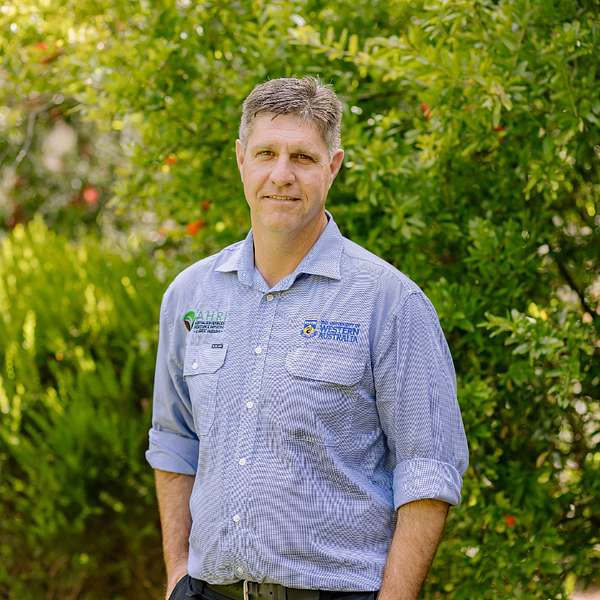
WeedSmart Podcast
Welcome to the WeedSmart Podcast Channel!
Each fortnight we'll bring you updates and in-depth interviews with farmers, agronomists and weed researchers from around our north, south and west cropping regions. #AusAg #Broadacre #Grains #Cotton #WeedManagement
Our regional update will talk to our industry leaders focusing on managing weeds, emerging regional issues and practical science-based solutions for use on-farm by you. #RegionalUpdate
Our technical update will speak with leading experts to bring the latest application of science to paddock supply chain of diverse weed management to mitigate herbicide resistance and maximise crop gross margins. #BeyondResistance
Our current podcaster, Shannon Beattie, will bring the conversation to you in your paddock, ute or tractor, so you can stay connected and plan ahead for future diverse weed management on your farm. Shannon will be joined by our team of WeedSmart Extension Agronomists Pete Newman, Chris Davey, Jana Freebairn, Greg Condon and Paul McIntosh.
Listen in to the latest podcast or scroll our back catalogue for progressive weed management over the years in Australian broadacre agriculture. Our previous podcasters Siobhon Eacott and Jessica Strauss provide a range of great interviews with farmers and agronomists for a local updates or technical experts bringing the science to you.
Stay connected. Stay informed. Stay WeedSmart.
#weedsmartau
WeedSmart Podcast
What's better out of hybrid and open-pollinated canola?
Got a question or topic you're interested in? Send us a text!
In this podcast, we’re talking about hybrid canola and how it might benefit your farming system.
We’ll hear from AHRI Agronomy Lead, Mike Ashworth, who has done research in this space, as well as Wagga Wagga grower, Michael Molloy, who grows Clearfield canola.
NEWS and LINKS
WeedSmart Week presentation recordings
WeedSmart Week Dubbo was a fantastic opportunity to learn first-hand how Western Plains growers control weeds whilst optimising yields and profits. If you were not able to join us in person, you can watch the recordings of the forum presentations on our website.
Articles
Our content writer Cindy Benjamin has written some excellent articles this month.
1. Keep clear of paraquat-resistant fleabane: The lack of new broad-spectrum knockdown herbicide options means that growers need to be working hard on other management tools where the double-knock is losing efficacy. Agronomist Barry Haskins gives his top tips to control fleabane.
2. Tackle weeds and herbicide resistance with the Big 6: Nutrien agronomists from across the country shared their tips to help control crop weeds.
3. Can annual ryegrass be beaten in the Northern region? Annual ryegrass is a relatively new weed in the North. With its capacity to produce large amounts of seed and readily evolve herbicide resistance, growers and agronomists should avoid widespread infestation. Garry Onus, senior agronomist with Nutrien Ag Solutions, in Moree, NSW, gives his top tips to control annual ryegrass in northern farming systems in-crop and in the fallow.
4. Does ambient temperature affect herbicide performance? Applying herbicides outside the optimal temperature range is likely to contribute to a spray failure, even in susceptible populations. For example, twice as much clethodim is required to kill ryegrass if the product is applied after 3 days of frost. And glyphosate efficacy is much better at 20°C than at 30°C. Associate Professor Chris Preston (The University of Adelaide) explains how ambient temperature affects herbicide performance.
Learn more about WeedSmart and the Big 6 framework for proven weed management practices by visiting our website.
Don't forget to follow us on our socials:
Keen for a monthly update? Subscribe here!
Got a question or topic you are interested to hear about? Send us an email
See our other Regional Updates and Beyond Resistance podcasts for great stories from across the Australian growing regions.
#drivesafe #farmsafe

